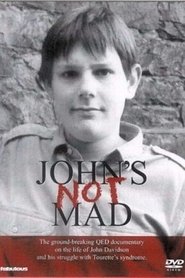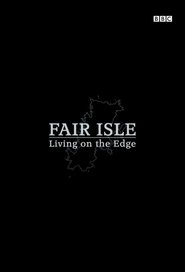Bbc One TV Series - Page 114
-
That Puppet Game Show
2013
That Puppet Game Show was a British television series hosted by Dougie Colon, which began airing on 10 August 2013 on BBC One. The show had been made by the BBC in conjunction with The Jim Henson Company and features the Miskreant Puppets from Puppet Up! in their first family-related appearance. The shows last episode aired on September 14, 2013 and did not return to finish the series after it was axed due to low viewing figures. -
Moses
0000
Moses
0000
Moses is a British documentary programme that chronicles the life of Moses using scientific and contemporary historical evidence. It was first broadcast in the United Kingdom at 8 p.m. on 1 December 2002, and was produced and joint-sponsored by the BBC and TLC in association with Jerusalem Productions. Moses was commissioned by the BBC in July 2001 following the success of a similar series, Son of God, which had been broadcast three months earlier—it documented the life of Moses is a style similar to that which Son of God had previously done for Jesus Christ. Moses was presented by Jeremy Bowen, a former Middle East correspondent for BBC News, and was directed by Jean-Claude Bragard. It featured live-action reenactments, computer-generated images of the period and interviews with historians and scholars. -
Children in Need Rocks Manchester
0000
Children in Need Rocks Manchester was a charity music concert held at the Manchester Arena in Manchester, England, on 17 November 2011. The concert was organised by Take That singer and The X Factor judge Gary Barlow as one of a series of events to raise money for Children in Need 2011. It became the second Children in Need Rocks concert organised by Barlow, after the Children in Need Rocks the Royal Albert Hall in 2009. -
Epic Win
2011
Epic Win
2011
The programme sees contestants complete individual challenges such as trying to dress while bouncing a football or cycling while trying to inflate hot water bottles. Those who complete their challenge go to the "Epic Centre" and have the opportunity to win between £3 and £3,000, depending on what the panelists think this is worth. -
The Science Of Superstorms
2007
Documentary films tackling viable means of reducing or preventing the impact of extreme weather. -
Finders Keepers
0000
Finders Keepers
0000
Finders Keepers is a children's game show broadcast by the BBC from 1981 to 1985. The show combined a quiz element with a computerised version of the game Battleships. Two teams of three primary school-aged pupils would compete against each other. On scoring a "hit" at the Battleships game, the team had to answer a question to gain the associated points. The show was also notable for host Richard Stilgoe playing the theme on a synthesiser live in the studio at the beginning, as well as the use of the phonetic alphabet to indicate the square on the battleship grid. The game of Battleships was played on a 7x7 grid and ran on a BBC Microcomputer. According to the Kaleidoscope Children's Guide, some editions of the series were wiped from the BBC archives in 1993. -
John's Not Mad
0000
John's Not Mad
0000
John's Not Mad is a QED documentary made by the BBC in 1989. It was ranked, in a British public poll, as one of the 50 Greatest Documentaries. The film shadows John Davidson, a 15-year-old from Galashiels in Scotland, who had severe Tourette syndrome. John's life was explored in terms of his family and the close-knit community around him, and how they all coped with a misunderstood condition. -
The Real Swiss Family Robinson
2009
The Real Swiss Family Robinson is a four-part BBC television miniseries in which different families leave their regular lives behind and sample life on a desert island. -
Catchword
0000
Catchword
0000
Catchword was a daytime word game show first shown on BBC1 Scotland from 17 April 1985 until 2 April 1986, hosted by Gyles Brandreth, and then network on its sister channel BBC2 from 5 January 1988 until 23 May 1995, hosted by Paul Coia -
Nairn's Europe
1970
Nairn's Europe
1970
A series of programmes in which Ian Nairn contrasts the urban civic style of Britain and the Continent. -
Fair Isle: Living on the Edge
2016
Charting life on Fair Isle, Britain's most remote inhabited island, situated halfway between the Shetland and Orkney Islands, and with a population of just 55 -
Tricked-Out Tractors
2020
Tricked-Out Tractors
2020
Tricked Out Tractors brings together an unlikely trio of petrol heads to tackle mechanical mess-ups and major makeovers on some of the country's most prized and admired tractors -
Harbour Lights
0000
Harbour Lights
0000
Harbour Lights is a television drama broadcast by the BBC for two series in 1999 and 2000. It was filmed in Bridport in Dorset, and set in a fictionalised version of the town, known as Bridehaven. Story lines centred around the town's harbourmaster, Mike Nicholls, a former Royal Navy officer, played by actor Nick Berry. -
See You in Court
2011
See You in Court
2011
See You In Court is a 2011 BBC One documentary series about celebrities taking libel action against the media. -
Make Me...
2009
Make Me...
2009
In a quirky new series with science at its heart, Michael Mosley self-experiments and meets individuals and experts to answer some of science's most puzzling questions. -
High Street Dreams
2010
High Street Dreams
2010
High Street Dreams is a BBC television documentary series first aired in 2010 based around the development of products to sell in High Street shops and Supermarkets. -
A Jubilee of Music
0000
A Jubilee of Music
0000
A Jubilee of Music is a one-off BBC Television entertainment show lasting 75 minutes, broadcast on 31 December 1976 on BBC1. The show was produced to celebrate the British music successes of the first 25 years of Elizabeth II's reign, on the eve of 1977, the year of her Silver Jubilee. Some non-British artists also took part, performing their British hits. The show was produced and directed by Stewart Morris. It was recorded at BBC Television Centre in December 1976. Despite being a high-profile broadcast at the time, the show has since been lost from the BBC archive and has not been seen in the UK since its one and only transmission. It was shown on several European networks at the start of 1977, including Belgian, Dutch, German, Swedish and Norwegian TV, as well as several networks in Africa and the Antipodes. The show was hosted by Dame Vera Lynn, who opened the programme performing a medley of British hits spanning 1952 to 1976, by leading British songwriters. These included Paul McCartney, John Lennon, Mick -
The Disorderly Room
0000
The Disorderly Room
0000
The Disorderly Room was a very early British television comedy production, written by Eric Blore and starring Tommy Handley. Blore was also an actor who played roles such as butlers in various Hollywood films, while Handley later found greater fame in the BBC radio comedy show It's That Man Again. The Disorderly Room was first performed on stage at the Victoria Palace Theatre, in 1919 and starred Blore, Stanley Holloway, Tom Walls, Leslie Henson and Jack Buchanan. The show was a one-off piece which consisted of a single sketch, wherein army disciplinary proceedings were put to the tunes of various popular songs of the day. It was first performed live on the BBC Television Service on Saturday 17 April 1937, in a fifteen-minute form at 3.45pm. Such was its popularity, however, that the production was re-staged on various occasions before the suspension of the flegdling television service for the duration of the Second World War in September 1939. The later performances on 30 August 1937; 23 December 1937; 15 August





